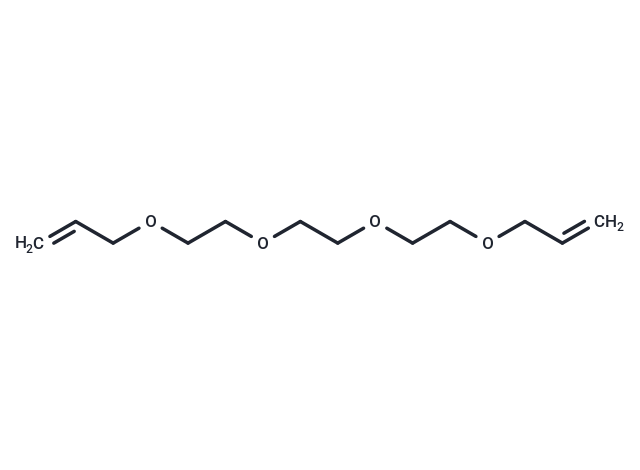Shopping Cart
- Remove All
 Your shopping cart is currently empty
Your shopping cart is currently empty

Propenyl-PEG3-Propenyl, a PEG-based linker for PROTACs, connects two essential ligands crucial for forming PROTAC molecules, enabling selective protein degradation by leveraging the ubiquitin-proteasome system within cells.

| Pack Size | Price | Availability | Quantity |
|---|---|---|---|
| 100 mg | Inquiry | Backorder | |
| 500 mg | Inquiry | Backorder |
| Description | Propenyl-PEG3-Propenyl, a PEG-based linker for PROTACs, connects two essential ligands crucial for forming PROTAC molecules, enabling selective protein degradation by leveraging the ubiquitin-proteasome system within cells. |
| In vitro | PROTACs are composed of two distinct ligands connected by a linker; one ligand targets an E3 ubiquitin ligase, while the other targets the desired protein. This structure allows PROTACs to harness the intracellular ubiquitin-proteasome system to selectively degrade target proteins[1]. |
| Alias | Triethylene glycol diallyl ether, Propenyl-PEG3-Propenyl |
| Molecular Weight | 230.304 |
| Formula | C12H22O4 |
| Cas No. | 90736-68-8 |
| Storage | Powder: -20°C for 3 years | In solvent: -80°C for 1 year | Shipping with blue ice. |

Copyright © 2015-2025 TargetMol Chemicals Inc. All Rights Reserved.